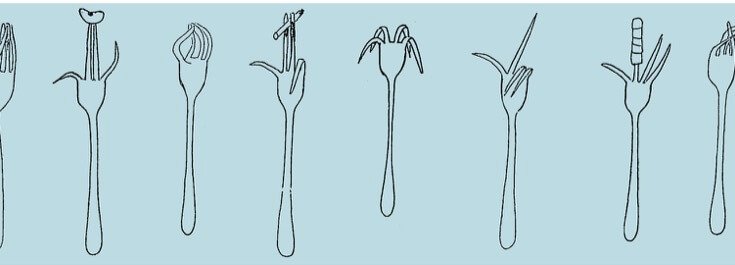Why do I write? For so many reasons. I write because I feel pain—not mental or emotional pain, but actual physical pain that starts in my shoulders, rockets down my spine, and nestles into my lower back, forming a corona of deep, prickly ache. My doctor said that writing would be the best way to get rid of this pain, though mostly I find that when I sit at the computer, the pain actually gets worse. Maybe I need another doctor.
But that’s not the only reason I write. For me, writing is a need, like eating or going to the toilet five times during the night, or taking several hours a day to relax my mind while watching soap operas. Like many writers, I’m hounded by a relentless need to please my father, who’s always hovering over me, watching, watching. I find this especially annoying because I very nicely redid the basement so Dad could live there. But, for my father, nothing I write is ever good enough. For instance, as I write this, he asks, “What are you working on?” I tell him. He says, “You should write for The New York Times more.” Bugger off, Dad.
Why do I write? Why does a tree grow leaves? Why does bread become mouldy? How did the leopard get his spots? Would you people leave me alone, already? I’m trying to write here!
I think you’ll find instructive the story I’m about to tell. It was somewhere between 1988 and 2001. I was seventeen years old, or perhaps thirty-two, and quite ill with a rare type of paralysis that affected my brain, but also my limbs. Every day, I would sit in that taqueria, staring at my notebook, cursing myself for having decided to write an epic historical novel about the life of Nefertiti, the forgotten queen of the Nile. A beautiful woman walked in, saw my grease-splattered T-shirt and my random scrawlings, and asked, “Are you a writer?” “Yes,” I said. “My god,” she said, “I really want to have sex with you!” For the next five years I got nothing done at all.
So I guess what I’m really trying to say is this: When I was working as a reporter many years ago, my paper sent me to a housing project on the south side of Chicago that was about to be torn down. There was an old woman who lived in one of the buildings. She refused to move. This was her home, she said.
“My babies were born here!” she said.
“Interesting,” I said. “Mind if I use your phone?”
I write for women like her. In the end, there’s no life more satisfying than a writer’s. Think about all the special things a writer gets that others don’t: the pen/Faulkner Awards, the summer retreats in New England, the complimentary sea-urchin salad in any Little Tokyo restaurant. When I wake up in the morning and I see that I have seventy-five e-mails from hopeful young writers who want me to read their manuscripts, I delete all of them. Then I call my agent and say, “Whaddya got for me?” Those are the kinds of moments I treasure. Those are the times that oil my chassis.
I once had an editor, a ninety-four-year-old Polish émigré who had trouble swallowing but was full of wisdom. He told me, “Neal, don’t ever make a sandwich when you can get someone to buy you one. A writer’s got to eat!” It was sage advice, and since then I’ve made it a point never to pay for lunch. Sometimes this means stealing, but personally, I don’t see anything wrong with that arrangement. If I liberate, say, a pastrami-and-cheddar sandwich from the deli on the corner, and later on in the day, the store owner reads one of my stories in a magazine or picks up my short-story collection from the remainder bin, well, then, that would be a fair trade. If anything, I’d be the one who got stiffed.
As we move into the Twenty-First Century, the writer’s office is a suspect one. So many things are conspiring to deny him his rightful place in the world: television, popular music, other writers, the incessantly breathing shadow of his father, who is always coming up from the basement and never giving him a moment’s rest. Then there’s the spectre of terrorism. The knowledge that there are invisible enemies who want to take away my way of life makes it difficult for me to write. Sometimes, when I write, I denounce these enemies. A writer today must be brave in the face of this new threat, and must tell the world of his bravery. That’ll really move the product. Who knows? One of the terrorists could be your neighbour. Or your best friend. Or you!
In conclusion, let me extol the writer’s life. Let me place it on a pedestal far out of proportion with its importance to the rest of the world. Essays like this are the cornerstone of my existence, because people pay me to write them. Who am I to say no at these rates? I write to inspire the children. We are our children, and they are we. Young people of Canada, I implore you: Write! Write, my dear hearts, write! Write until your fingers fall off and then have your excellent national health-care service reattach them so you can write some more! If you keep writing, life will bestow upon you its ultimate reward. This is a dream I would wish for everyone. Someday, you’ll all be just like me.




